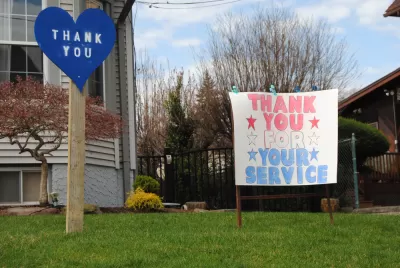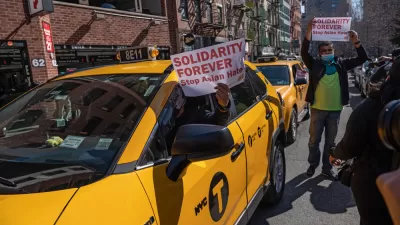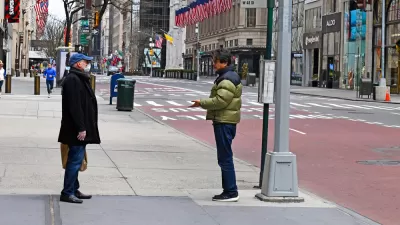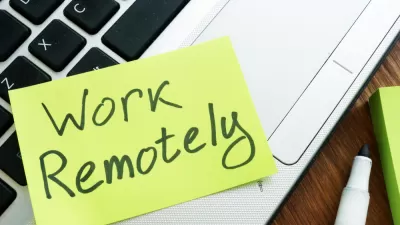The pandemic has affected all of us in big and small ways. A park planner shares how his professional and personal lives have changed as a result of the coronavirus.

COVID-19 has impacted how we live, work, and play. In this article, park planner Clement Lau shares how he has been affected, professionally and personally, by the pandemic.
Like most people, Lau was compelled to telework. Teleworking full-time initially meant that he no longer had a commute that involved the use of public transit and extensive walking which he enjoyed. Lau also discusses how the pandemic resulted in budget cuts, programs and positions being eliminated at his work, and temporary reassignment of colleagues to COVID-related efforts. In addition, the closure of certain park amenities like playgrounds and basketball courts have been especially challenging, because those are the very attractions that his family enjoys the most.
But things have not been all negative. Lau shares a few silver linings, which most of us can probably relate to: working from home offers some advantages and has not impacted productivity; being forced to stay inside has created more time to reflect, read, and write; and being forced to stay inside has also inspired a greater appreciation for nature and green spaces.
Lau concludes by offering a word of encouragement to planners and parks and recreation professionals to take care of ourselves and our loved ones and stay strong so that we can continue to serve communities to the best of our ability.
FULL STORY: Reflections Of A Park Planner

Planetizen Federal Action Tracker
A weekly monitor of how Trump’s orders and actions are impacting planners and planning in America.

Maui's Vacation Rental Debate Turns Ugly
Verbal attacks, misinformation campaigns and fistfights plague a high-stakes debate to convert thousands of vacation rentals into long-term housing.

Restaurant Patios Were a Pandemic Win — Why Were They so Hard to Keep?
Social distancing requirements and changes in travel patterns prompted cities to pilot new uses for street and sidewalk space. Then it got complicated.

In California Battle of Housing vs. Environment, Housing Just Won
A new state law significantly limits the power of CEQA, an environmental review law that served as a powerful tool for blocking new development.

Boulder Eliminates Parking Minimums Citywide
Officials estimate the cost of building a single underground parking space at up to $100,000.

Orange County, Florida Adopts Largest US “Sprawl Repair” Code
The ‘Orange Code’ seeks to rectify decades of sprawl-inducing, car-oriented development.
Urban Design for Planners 1: Software Tools
This six-course series explores essential urban design concepts using open source software and equips planners with the tools they need to participate fully in the urban design process.
Planning for Universal Design
Learn the tools for implementing Universal Design in planning regulations.
Heyer Gruel & Associates PA
JM Goldson LLC
Custer County Colorado
City of Camden Redevelopment Agency
City of Astoria
Transportation Research & Education Center (TREC) at Portland State University
Jefferson Parish Government
Camden Redevelopment Agency
City of Claremont





























